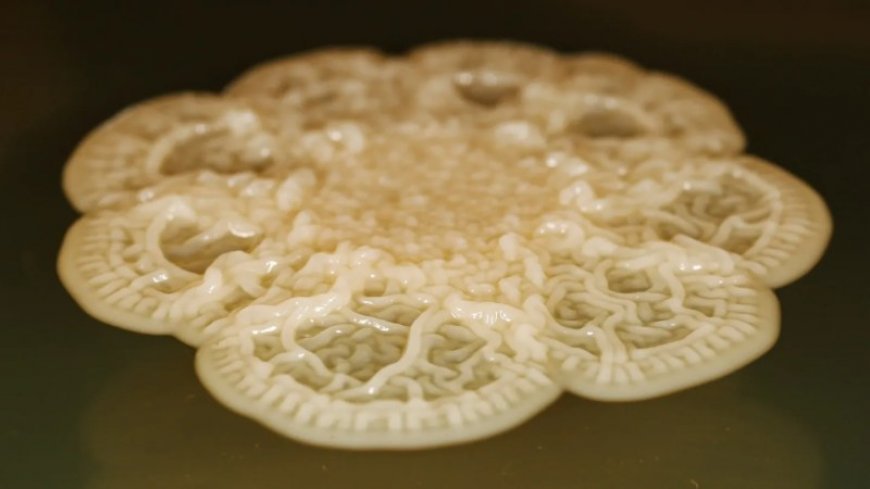Some bacteria in your mouth can divide into as many as 14 cells at once
The filamentous bacterium Corynebacterium matruchotii has a unique reproductive strategy that might allow it to claim territory quickly.

The unique reproductive strategy would maybe allow the bacteria to claim territory quickly
Indubitably among the foremost common bacteria in dental plaque is Corynebacterium matruchotii (one colony, shown). And it has a novel sort of cell division, splitting into as many 14 cells at a time.
S. Chimileski

A couple of of the greater than Five hundred species of bacteria that thrive in the human mouth, one seems to play by its own rules.
Rather than reproducing by splitting itself in two, like most bacteria do, Corynebacterium matruchotii divides into as many as 14 cells simultaneously, researchers report in the Sept. 10 Lawsuits of the National Academy of Sciences.
C. matruchotii is a filamentous bacterium known to reside in plaque near the gum line. Microbiologist Scott Chimileski of the Marine Biological Laboratory in Woods Hole, Mass., noticed cells prolifically splitting as he and colleagues used time-lapse imaging to study are living microbial communities in the human mouth (SN: 7/eleven/sixteen).
“Once he presented the finding, we thought, ‘Oh my God! Which is completely amazing,’” says study coauthor Gary Borisy, a microbiologist at the ADA Forsyth Institute in Cambridge, Mass.
Some different varieties of bacteria can divide many times at once to generate spores — dormant cells so as to later became active daughter cells. But no other known species divides into many daughter cells that then also without delay start growing and dividing, the researchers say.
The unique reproductive strategy would maybe allow C. matruchotii to quickly claim various territory. “After we brush our teeth, we brush the bacteria away. But by the following day, it’s back,” Borisy says. “We predict it just crawls up by rapidly expanding into fresh territory.”
The team next plans to study how C. matruchotii forms a biofilm that other bacteria in the mouth bind to, so as to have implications for oral health.
More Stories from Science News on Microbes
What's Your Reaction?



























































